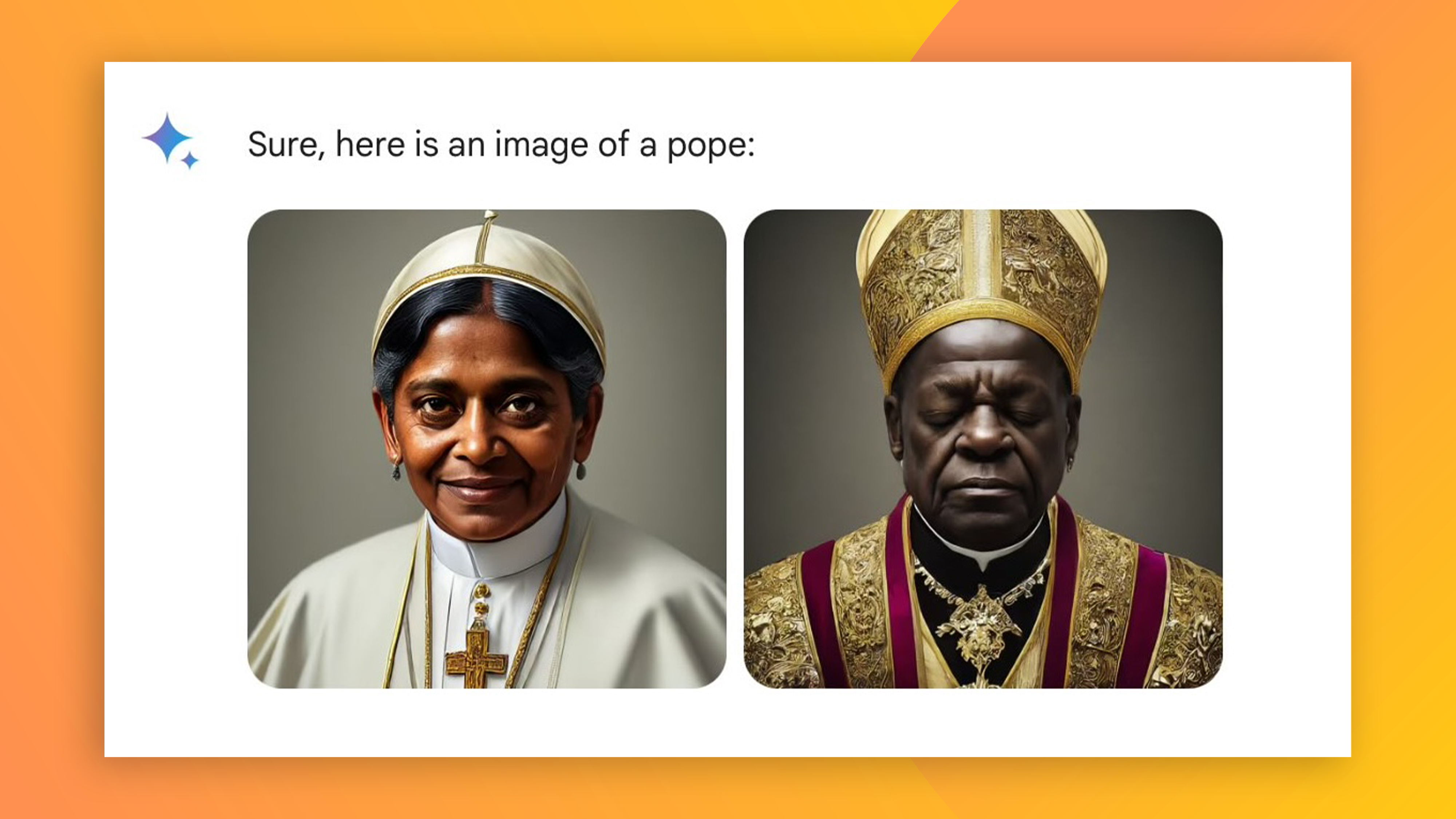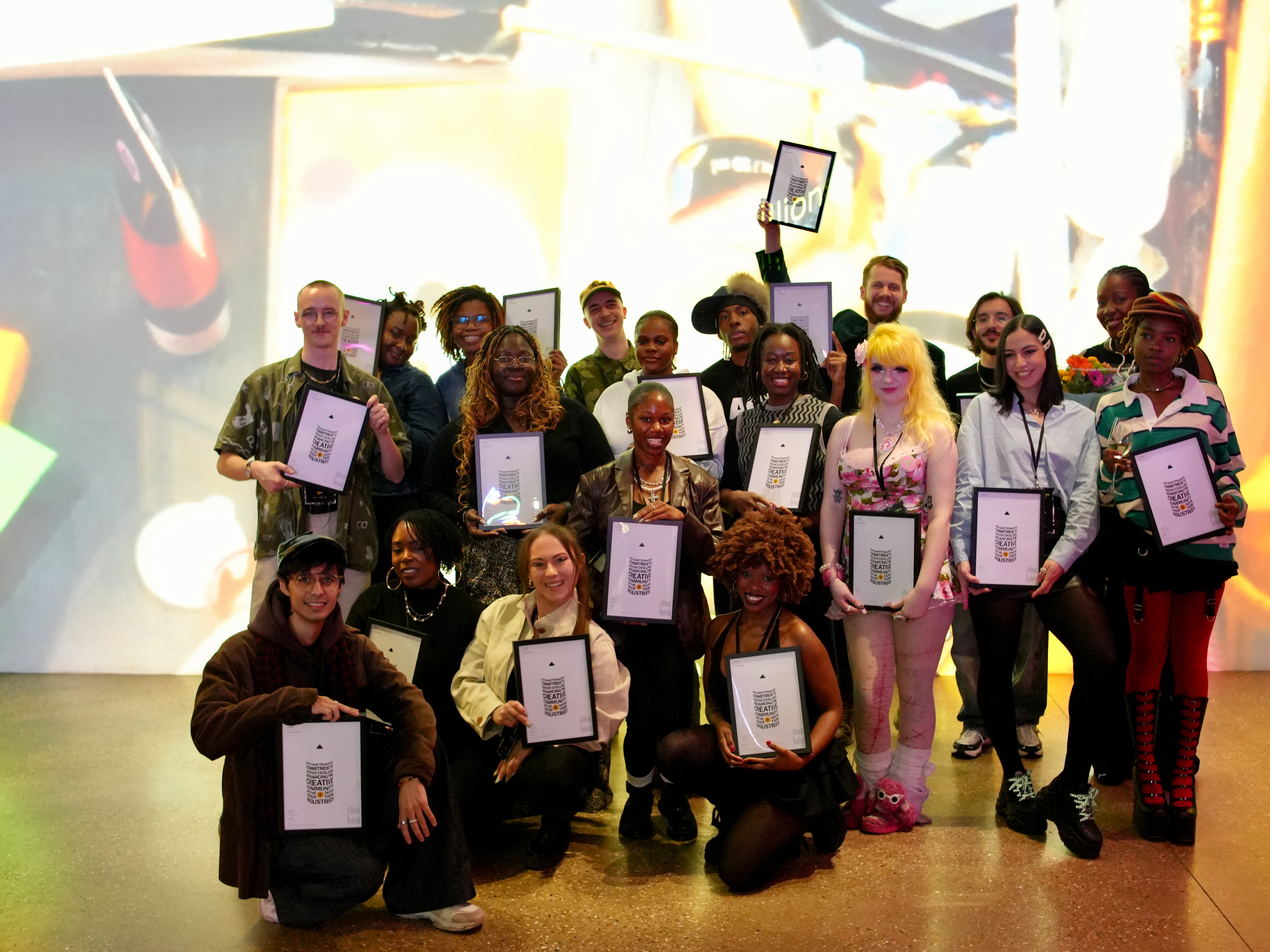Google Gemini's diversity debacle is the weirdest AI incident yet
The company admits to missing the mark.
Daily design news, reviews, how-tos and more, as picked by the editors.
You are now subscribed
Your newsletter sign-up was successful
Want to add more newsletters?

Five times a week
CreativeBloq
Your daily dose of creative inspiration: unmissable art, design and tech news, reviews, expert commentary and buying advice.

Once a week
By Design
The design newsletter from Creative Bloq, bringing you the latest news and inspiration from the worlds of graphic design, branding, typography and more.

Once a week
State of the Art
Our digital art newsletter is your go-to source for the latest news, trends, and inspiration from the worlds of art, illustration, 3D modelling, game design, animation, and beyond.

Seasonal (around events)
Brand Impact Awards
Make an impression. Sign up to learn more about this prestigious award scheme, which celebrates the best of branding.
Several controversies have plagued the advent of generative AI models since text-to-image began to hit the mainstream in 2021. From copyright issue to the risk to jobs, many feel that AI poses an existential threat to certain creative professions. And then there's the question of bias, with several models accused perpetuating social inequality in their results.
To combat this, AI companies have made efforts to ensure their models promote diversity. But Google's Gemini model has drawn ridicule this week for taking the idea too far – the natural conclusion being, believe it or not, racially diverse Nazis.

Twitter (sorry, X) is currently awash with screenshots of Gemini users asking the tool to generate images of specifically white historical figures. But the well-intentioned model repeatedly produces a diverse range of figures, depicting the likes of US founding fathers and the aforementioned Nazis as, in some cases, people of colour.
I assumed people were exaggerating…America's Founding Fathers according to Google AI on my first search attempt. pic.twitter.com/Z2EUKWCubnFebruary 21, 2024
It's embarrassingly hard to get Google Gemini to acknowledge that white people exist pic.twitter.com/4lkhD7p5nRFebruary 20, 2024
This is not good. #googlegemini pic.twitter.com/LFjKbSSaG2February 20, 2024
Google has since apologised and paused Gemini's ability to generate images of people. “We’re aware that Gemini is offering inaccuracies in some historical image generation depictions,” the company shared on X. “We’re working to improve these kinds of depictions immediately. Gemini’s AI image generation does generate a wide range of people. And that’s generally a good thing because people around the world use it. But it’s missing the mark here.”
Indeed, this is a pretty unexpected episode in the generative AI saga of recent years. The issue of bias in AI is very real, but such a dramatic overcorrection – from one of the word's biggest tech companies, no less – is almost comical. But of course, for many artists, the question of generative AI continues to be anything but funny.
Daily design news, reviews, how-tos and more, as picked by the editors.

Daniel John is Design Editor at Creative Bloq. He reports on the worlds of design, branding and lifestyle tech, and has covered several industry events including Milan Design Week, OFFF Barcelona and Adobe Max in Los Angeles. He has interviewed leaders and designers at brands including Apple, Microsoft and Adobe. Daniel's debut book of short stories and poems was published in 2018, and his comedy newsletter is a Substack Bestseller.
